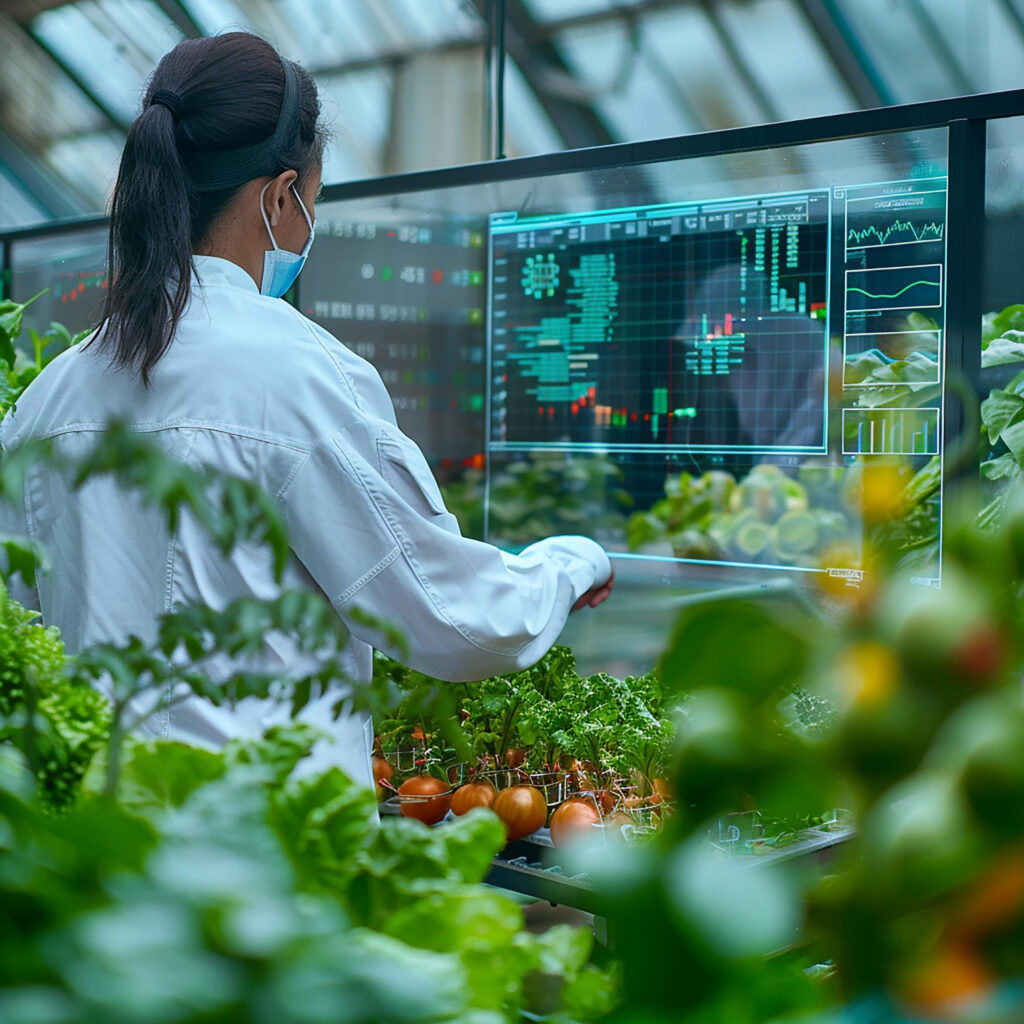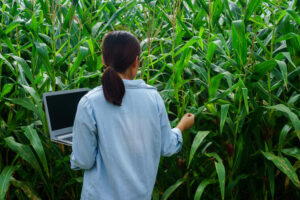Biotechnology as a solution to the global food crisis

Una científica supervisa cultivos en un invernadero utilizando tecnología avanzada para optimizar la producción de alimentos.
The global food crisis is one of the greatest challenges facing humanity. As the world’s population grows, nutritional needs increase, while traditional agricultural systems struggle to keep pace. Climate change and the depletion of natural resources exacerbate the problem. However, biotechnology offers innovative solutions to transform food systems and ensure long-term food security.
Biotechnology is key to rethinking food production in a more efficient and sustainable way. Currently, agricultural and food systems are responsible for more than one-third of global greenhouse gas (GHG) emissions, worsening climate change. The expansion of agriculture, combined with the growing demand for animal-based products, contributes to deforestation and the depletion of water resources, putting global biodiversity at risk. Against this backdrop, biotechnology-based solutions such as plant proteins and lab-grown meat are effective alternatives to reduce environmental impact.
For example, the U.S. company BIOMILQ has developed infant milk cultivated from mammary cells, eliminating the need for conventional breastfeeding and reducing the environmental footprint of the dairy industry. Another major breakthrough is the cultivation of meat from animal cells, a technology that enables the production of meat without raising or slaughtering animals, significantly reducing greenhouse gas emissions, water use, and agricultural land demand.
Beyond cultivated meat, biotechnology is innovating in plant-based food creation that mimics the taste and texture of animal products. The Plant2Food project, launched by the Novo Nordisk Foundation, aims to develop tastier, more nutritious, and more affordable plant and microbial-based food products, which could accelerate the transition to a more sustainable and healthy diet.
Biotechnology and its contribution to climate change mitigation
One of the areas where biotechnology has a significant impact is in reducing greenhouse gas emissions. Agriculture—particularly livestock—is one of the main sources of emissions due to enteric fermentation in animals and deforestation. By using biotechnology to create alternatives to traditional meat products, such as plant proteins, we can reduce CO₂ emissions and minimize the use of natural resources.
The use of biofertilizers and biopesticides is also essential to lowering agriculture’s environmental impact. These biological products improve soil health, reduce dependence on toxic chemicals, and sustainably increase crop yields. According to recent studies, such biological solutions could reduce global GHG emissions by up to 8% by 2030, representing an important step toward carbon neutrality in the agricultural sector.
Furthermore, biotechnology enables better water and soil management, contributing to the sustainability of agricultural systems. By using genetically modified crops to withstand extreme conditions such as drought or heat, it is possible to maintain efficient agricultural production without compromising natural resources.
Overcoming challenges to implementing biotechnological solutions
Despite promising advances, the adoption of biotechnological solutions in agriculture and food production still faces significant challenges. One of the main barriers is the regulatory approval process in many countries, which is often slow and restrictive, delaying the market introduction of innovative technologies.
In Europe, for example, alternatives to cultivated meat are not yet available to consumers due to delays in authorization procedures. However, countries such as Singapore and the United States have already begun approving these products, demonstrating their potential to transform the food industry sustainably.
To overcome these obstacles, it is necessary to increase public and private investment in research and development, especially for small and medium-sized enterprises working on sustainable innovations. In addition, policies should facilitate faster approval of new technologies, incentivize the use of biotechnological solutions throughout the agri-food value chain, and promote carbon pricing to reduce GHG emissions.








